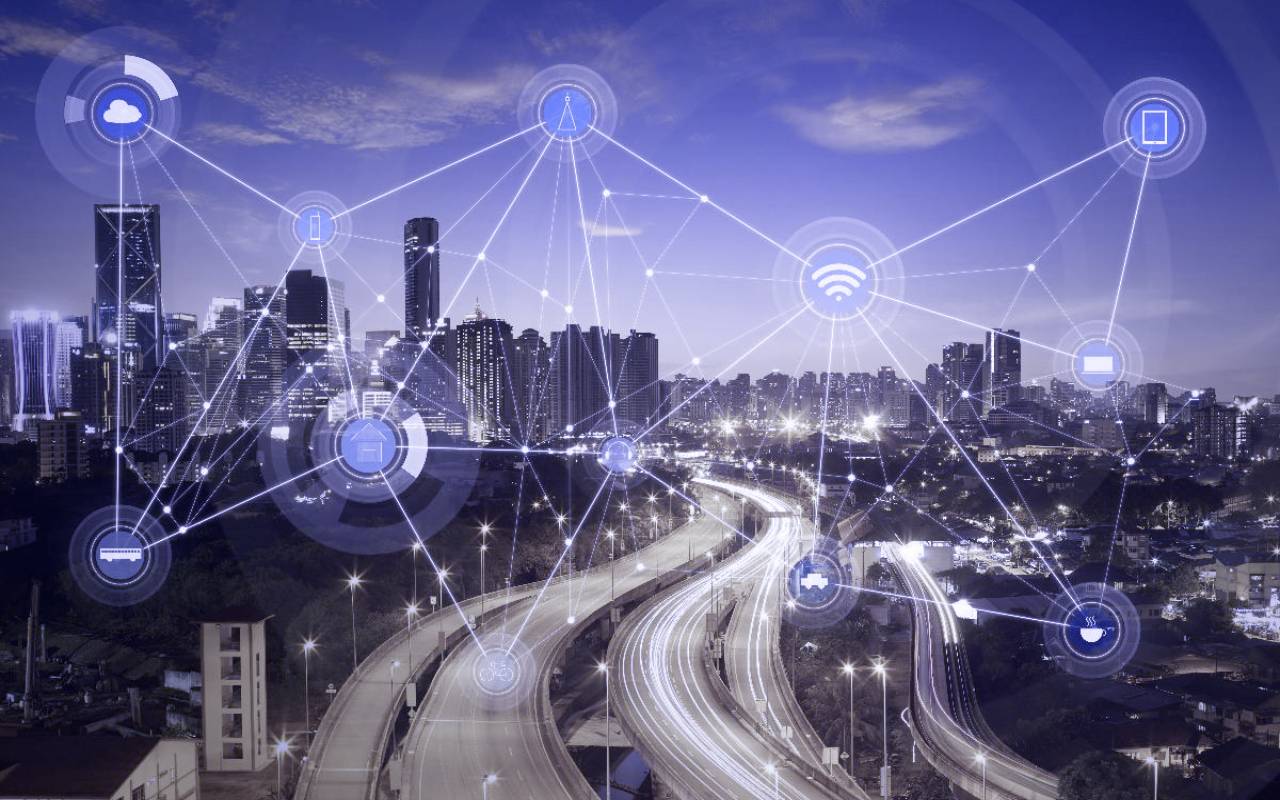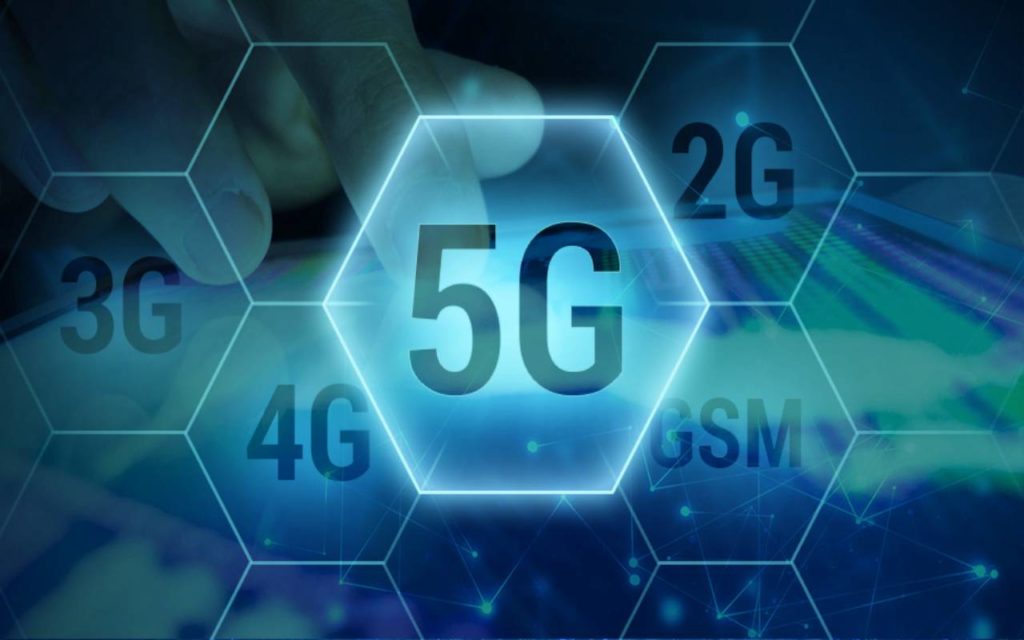The Mobility In The Era Of Digitalization

Mobility is one of the legs on which the digital transformation is based and is one of the main bets of the companies. We analyze the situation of the mobile world in the company.
The reality is that mobility solutions and mobile devices are more than settled in companies. The evolution that in society has experienced in a society where conciliation begins to be a requirement, the high cost of offices or the possibility of working from anywhere on the planet, are some of the elements that have favored the development of mobile solutions In the companies.
With this situation, the reality is that the company no longer needs to have workers tied to a chair and an office so that it can perform its task. Thus, workers begin to find, thanks to this labor mobility, how they can pick up their children to school, and then continue working from home. Companies also do not need to rent large office spaces since it is not necessary to have all employees in the same physical space, which results in significant savings to companies. And of course, it doesn’t matter where a worker is if he has a connection he can work.
In short, it is an element that favors companies and employees but still faces certain challenges. In this sense, Emilio Dumas, general director of Dynabook, affirms that “the biggest challenge for companies in the face of the phenomenon of labor mobility that we are experiencing is to find the balance between acquiring solutions that guarantee maximum operational and safety efficiency and that, at the same time, be affordable in terms of infrastructure management, maintenance, and costs. The particularity of mobility is that it has been the employees who have forced organizations to take this leap, demanding higher quality tools to work from anywhere or collaboratively. A situation that is further amplified with the arrival of new generations in the world of work,
It is true that this is one of the keys to the mobile revolution. And it is the users who have made companies bet on mobile tools. Until now, the best technology was always in a company, but since the first smartphone appeared, the situation changed. It was the home user who radically embraced the new mobile technology, and that change was what allowed companies to adapt. But, companies still have a way to go. For example, from the company NOW and from its perspective of management software manufacturers, it is stated that “we must take the current information systems to the device that we all use most frequently, to our smartphones. And, with this, extend it to client suppliers and other members of the value chain. For this, processes, procedures and new relationships must be redefined. We must think of another way of doing things in the search for greater efficiency. ”
Table of Contents
Mobility: A-Pillar In Digitalization
As we have said, mobility is one of the indispensable elements in the digital transformation of the company. Mobility has been the cement on which the technological transformation has settled and will continue to be so in the near future. As David Alonso, director of Samsung’s business area, says, “mobile technology is transforming business, customer service and the way we work every day. We could say that we are facing a new mobile era, where mobile devices allow us to achieve everything that previously seemed impossible: work from a distant place, navigate at maximum speed, manage payments from our suppliers and use our software and business applications as if We were in the office. ”
The reality is that digitalization cannot be understood without taking mobility into account. And, as Ignacio Herrero, director-general of NOW, says, “mobility is one of the best bets in terms of digitalization. From there, it is true that it opens a world of possibilities … Of course, analyzing the issue from a broader point of view, many new businesses could not have appeared, let alone consolidate, without mobility being one of its pillars keys”.
And they will continue to increase. More and more companies will incorporate a greater number of mobile devices and solutions. As stated, Miguel Angel Cervera, director of Modern Workplace and Cybersecurity at Microsoft, “Within a short time, 50% of workers worldwide will do so in a mobile way and it is expected that, in 2025, 75% employees are millennials, which means that companies that have not yet faced their digital transformation have to consider doing so as soon as possible. Not only to take advantage of all the advantages that digitalization brings when working but to ensure its competitiveness in an increasingly demanding market and even attract young talent that demands modern tools.
Therefore, what more and more companies understand, is that betting on technology as a way to improve the way of working of their employees, will mean in the medium and long term a return on investment. ”
The Role Of The Cloud In Mobility

For the development of mobility, the cloud has played an essential role. In fact, the operation of many applications could not be understood without Cloud Computing being there. As the CEO of Dynabook assures, “cloud computing is what we could call an old acquaintance of the IT managers of any company by allowing to meet such basic demands of employees as access to information and corporate resources, as well as collaborative work, regardless of place and at all times. In recent years, any company that has developed a mobility strategy, regardless of its maturity,
For its part, the Samsung spokesman believes that “the mobile industry is undergoing a great transformation thanks to innovative technologies such as 5G, IoT and Artificial Intelligence. Open collaboration is very important in this regard since it allows us to develop the opportunities offered by these technologies and offer connected services. For example, we have recently developed a security platform for emergency teams, police and firefighters with IBM, using the IBM cloud and Samsung’s Galaxy device ecosystem. Therefore, the cloud-mobility binomial is very important, since it can allow us to monitor situations and act immediately to protect the health of people, but also apply it to other sectors, such as financial, energy, retail, etc. ”.
Also for Ignacio Herrero, general director of NOW, the cloud has played and plays an important role in the development of business mobility. In his opinion, “the role that cloud plays in the world of mobility is key. The possibility of accessing countless applications to address support processes offers the advantage of being able to test different solutions at a minimum cost and see which one suits our needs. In this sense, it is necessary to advance how they interact with each other when necessary ”.
In short, the cloud has made it possible to change the way it works. And mobility has been a definitive driver in that change since together they have made it possible for employees to access information at any time and from anywhere, regardless of the device used, which has led to an increase in the productivity and take better advantage of the different digital applications. As the spokesman for Microsoft says, “the use, increasingly common cloud, favors the emergence of new work models that not only boost productivity and mobility.”
Advantages & Mobility Strategies
Despite all the advances that have taken place in the mobility environment such as global workforce solutions, there are many companies that are not taking advantage of all the advantages offered by mobility solutions. In many cases, the advantages are not taken advantage of by resistance to change. Incredible as it may seem, there are a majority of companies that exercise unbridled control over the presence of the worker in the office. That constant presence is more valued, despite the fact that the worker may be viewing his Facebook page. And, as Miguel Angel Cervera, from Microsoft, says, “the only barrier that companies find when implementing a clear mobility strategy is not related to technology, but to resistance to change.”
Yes, companies that are committed to mobility are more successful. That is why the reluctance of some companies is not understood since there are applications and devices for all kinds of needs. For example, in the section on terminals, the Samsung spokesperson believes that “each organization must be aware of its needs and the devices that best suit each employee. There are people who prefer to have a very wide screen to have a greater visualization of the contents they have to work with, and others prefer smaller terminals that are more manageable. There is a greater penetration of devices in all types of sectors and businesses, and manufacturers are also aware of these demands. In our case, the growing Galaxy ecosystem is growing and includes lighter devices to others with maximum performance and 5G. But not only that, last year, we launched a smartphone and a rugged tablet to support all kinds of professionals, including very specific functions so that they can collect electronic signatures, make annotations and designs with great precision, but also with a very design robust to avoid vibrations, falls and impacts if they work in mobility ”.
The same happens in the case of business applications. From NOW, Ignacio Herrero, says that “from our experience, as manufacturers of NOW and Flexygo, companies are betting on the mobile digitalization of their processes with growing interest. In this sense, some mistakes can be made in the redefinition of procedures, in the adaptation of users, but they have a quick solution. It is something that mobility also brings, greater simplicity and simplicity. ”
But if we talk about productivity, what must be recognized is that in the field of business solutions there is still a way to go. And, in many cases, the application with which you work on a computer does not have the same benefits or the same usability, if you move to a smartphone. As mobile device users grow in the workplace, the demand for more fluid connectivity is increasing.
In this regard, the Samsung spokesman states that “today, we live and work with multiple devices, and more advanced and much simpler connectivity is needed. Until now, if users of a PC needed content from their phones, they had to interrupt their work to look at their phone and open an application to be able to send the contents to their PC. Therefore, it was necessary that this content is synchronized automatically, in order to start a project on one device and resume it on another, without distractions. ”
Mobility And 5G

We have been talking about the benefits and the innumerable advantages that 5G will bring to our lives for several years. Actually it is already working, although its full potential cannot be extracted. In addition, until it is a standardized technology among the entire population, we still have to wait. But the advantages are clear: 5G will give Internet access to all kinds of devices, that is, the IoT will see its boom thanks to the speed, the reduction of latency or the lower saturation that it provides with respect to 4G. Emerging technologies that until now have become popular especially in homes and offices, will become increasingly common and ubiquitous, thanks to the bandwidth of the 5G mobile network.
For the CEO of Dynabook, Emilio Dumas, “the next generation of 5G networks is undoubtedly the trend that will drive and serve as a catalyst for many other technologies, among which Edge Computing, wearables, and 8K standout, called define our day to day as consumers and workers. So far, most of the forecasts around 5G have referred to investments and launches. However, this will change in 2020. With several telecommunications companies officially launching this technology and compatible telephones, the new generation of networks will result in the emergence of new types of jobs and exponential multiplication of productivity. ”
The great qualities of 5G, its speed and performance (with data transfer speeds far superior to the current ones and performances that improve those offered today by Wi-Fi networks and even many wired networks), and the notable reduction of latencies, They will have a great impact on companies and their way of operating. End-to-end latency is expected to fall below one millisecond allowing technologies and applications that are simply not possible with the current 4G.
In addition, the adoption of IoT by companies is growing significantly and will continue to do so in the coming years with the help of the connectivity provided by 5G. The Internet of Things provides companies with added value that allows them to optimize processes and focus on tasks that improve their productivity.
Let’s look at an example of what IoT will mean and how 5G technology can make use cases like this multiply exponentially: tire manufacturer Bridgestone has implemented Tirematics, an IoT solution based on Microsoft Azure for operators of commercial fleets
Bridgestone has added in each tire a series of innovative sensors that capture pressure and temperature in real-time and transmit that information to the Microsoft Azure cloud platform. When an anomaly is detected, Tirematics immediately issues an alert to the appropriate person, be it the driver, the tire technician or the maintenance manager. The result is a reduction in the workload of inspection and maintenance of the wheels and much less related operational problems, including breakdowns and safety. Bridgestone began developing Tirematics in Azure in August 2016 and its architecture includes Azure IoT Hub, Azure Data Lake, Azure Stream Analytics, Azure Event Hubs, among others. Definitely,
Mobility Security
The increase in mobile terminals and the massive adoption by users and companies have caused the cybercrime industry to see a real reef in mobile environments. As stated by Alfonso Ramírez, CEO of Kaspersky, “the number of attacks is constantly increasing, but not only to mobile devices but also to any device that provides mobility and the services the company offers to the user.”
From the point of view of security, it should be borne in mind that mobile devices nowadays have capabilities in terms of power, storage and, thanks to 5G, communications that equate them with the resources available in offices or centers of data. In this sense, José de la Cruz, technical director of Trend Micro, states that “the reality is that today’s offices are mobile, so in terms of cybersecurity we must take into account the dispersion of data, the reliability of communications, the physical security of the devices, as well as the software executed on them. For this, we must be able to implement the same levels of protection and control to these devices as to corporate environments. ”
The reality is that cybersecurity will be one of the great challenges of 2020 for all organizations, regardless of their size or sector of activity and will require that governments, companies and civil society work to find joint solutions. And cybersecurity is in the spotlight of all manufacturing companies. For example, Miguel Angel Cervera from Microsoft says that “our commitment is decided in each of the four major aspects that allow 360-degree protection of organizations: identity management and authentication, proactive and advanced threat detection, data protection and unified monitoring. All this contributes to something fundamental in the coming months: to strengthen the protection of all our clients in a world under increasing pressure from threats ”.
Samsung is also clear about its commitment since as its spokesperson states, “from our point of view, a protected device is the basis for creating a threat-free mobile ecosystem. Knox is the holistic platform that reduces risks in the hyperconnected world thanks to a series of overlapping defense and security mechanisms that have been incorporated into Samsung devices at hardware, operating system, and application levels. It is anchored in the chipset of the device itself during its manufacture and improves the Android Enterprise platform with much more granular security and management controls. Samsung is the only device manufacturer that adopts such a comprehensive and comprehensive strategy to ensure the safety of its devices.
Also Read : MACHINE LEARNING – THE FUTURE IS AT OUR REACH
